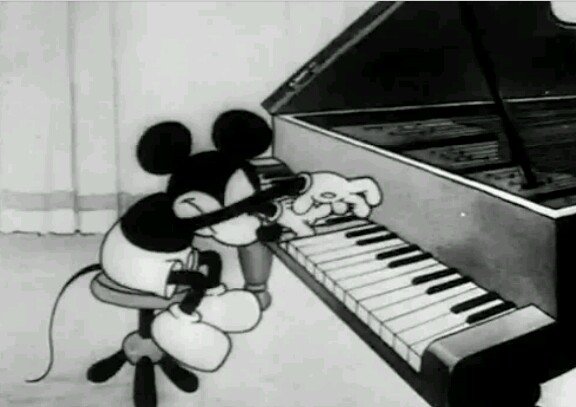Ten Practical Strategies For Improving Piano Skills!
Playing the piano is a long term commitment if you want to be good pianist. No matter what your goals are you will have to spend a good deal of time developing your skills through practicing. If want to learn to play the piano and become good consider following the suggestions below to create your abilities and fine-tune your skills.
- Develop a Practice Schedule For a Good Amount of Training.
Teach Yourself PianoYou have to take time out of your buy schedule every day to practice the piano using the piano for all practice program. Please understand that half-hour piano lesson a week is not enough. You will only get better through practicing and practicing. The more you practice the more your sound will become natural and musical. Take lessons and master your expertise through practice.
- You Must Frequently Train.
Commit an hour or two to training each day. This should be made a top priority if you want real results. You need to discipline yourself to make this happen each day.
- Train And Learn The Basic Techniques From The Beginning
You do not want to continue to practice the incorrect techniques because if you do it will take repetition to undo and unlearn the bad skill that you are used to playing. So concentrate on learning the piano chords and proper techniques and methods during each practice session so the proper skills become second nature.
- Become Your Worst Critic.
While practicing develop the skills to assess the tempo, sounds, and rhythms you are playing. You want to teach yourself to recognize when something is not right while fine tuning your ear to hear the mistakes. You want to correct mistakes and bad habits as quickly as possible.
- Practice Your Pieces In Parts.
This idea is quite helpful in case you want to practice a very lengthy piece. Divide the piece into a number of, small sections. Practice each section until you have learned every one of them separately. Then combine each section together to play the complete piece perfectly. Your objective will be to practice all the fine details of your piece, so it is possible to eliminate mistakes that can ruin your performance.
- Analyze The Minor Details.
You will see many notations applied in sheet music like finger numbers, accidentals, the tempo, and dynamic markings. The optimal way to train would be to really familiarize yourself with the meanings of the different terms and symbols. You may also consider utilizing a music dictionary that is helpful when you need to look up unknown terminology.
- Warm Up With Some Technical Exercises.
Just like sports athletes and singers, pianists need to spend time warming up and stretching before rehearsing. Include scales, arpeggios, and five-finger exercise during the warm-up period. Start slowly while warming up and spend enough time to really loosen up.
- Perform Single Hand Exercise.
A great way to warm up and master sophisticated piece of music is to practice with just one hand. Your mind requires some time and energy to put both your hands together. Show patience in this step as it may take time to make it right.
- Knowing Music Theory Can Be a Crucial Step.
Music theory, when it’s mastered, can certainly make everything seem to be easier. For example, study sheet music and analyze why certain notes are either flat or sharp. Teach yourself to spend time studying and identifying notes, chord structures, and music theory, and you will gain a further understand how composers form their music.
- Count Out Loud While Practicing.
You might be tempted to change the tempo of the piece, but attempt to steer clear of this. However, it is best to stay away from this practice because it will have an effect on the way the piece would certainly sound to your audience. Your audience will not be impressed, even though it sounds wonderful in your mind. Try to feel the tempo and rhythm of the music and you’ll feel every beat. You could do that by using a metronome or counting to yourself out loud.
In Conclusion
Even though studying ways to play the piano may possibly be monotonous, you will appreciate the great results any time you are in a position to perfect this ability. Using the right mindset and method, practicing could be a rewarding and fulfilling experience.

Hi! I am a robot. I just upvoted you! I found similar content that readers might be interested in:
http://pianoplayingadvice.com/ten-practical-strategies-for-improving-piano-skills/